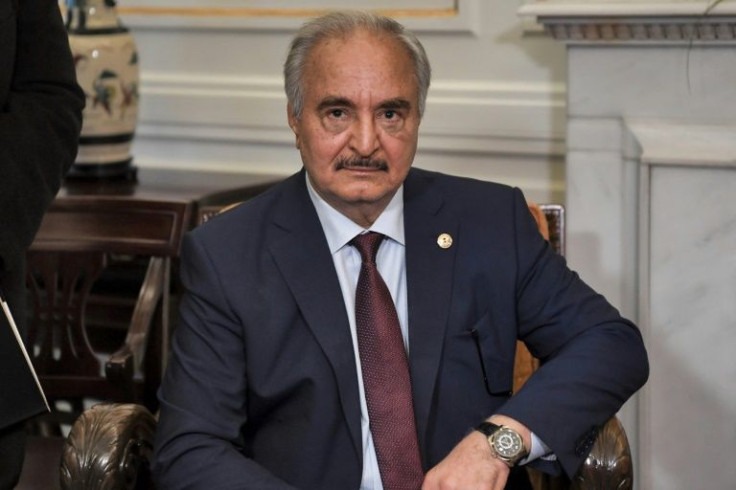US Judge Orders Libya Strongman To Compensate Victims' Families
A US judge Friday ordered the military chief of eastern Libya, Field Marshal Khalifa Haftar, to compensate Libyan plaintiffs who allege he ordered the torture and extrajudicial killings of their family members.
The federal judge in the state of Virginia, where Haftar lived before returning to Libya, ruled that he had not cooperated with the court and that by "default" was ordered to pay damages to the families.
Haftar, a dual US-Libyan citizen whose name is spelled "Hifter" in American legal documents, can still appeal the decision, and future hearings will need to be held to determine the level of compensation.
Nonetheless, Friday's ruling represents a major setback for the military leader.
"Justice has prevailed. Hifter will be held responsible for his war crimes," said Faisal Gill, one of the lawyers spearheading the cases, in a statement shared with AFP.
Filed in 2019 and 2020, the civil lawsuits argue that Haftar, as head of the eastern-based Libyan National Army, authorized the indiscriminate bombings of civilians during his unsuccessful 2019 campaign to take Tripoli, resulting in the death of the plaintiff's family members.
They are suing Haftar under a 1991 US law, the Torture Victim Protection Act, which allows for civil lawsuits against anyone who, acting in an official capacity for a foreign nation, commits acts of torture and/or extrajudicial killings.

The court had paused the case ahead of Libyan elections in December 2021 -- but restarted it after the vote was once again delayed.
Haftar has also unsuccessfully attempted to dismiss the suit, claiming immunity as a head of state.
Oil-rich Libya has been mired in a bitter power struggle since the fall of dictator Moamer Kadhafi's regime in 2011, with a major division between the north African country's east and west.
Two governments are vying for power: one based in Tripoli and another supported by Haftar's army, which controls portions of the east and south.
Haftar, 78, is a Soviet-trained soldier who assisted in the 1969 coup that brought Kadhafi to power. After taking on a senior military position in Libya's war with Chad, Haftar was taken as a prisoner of war, and subsequently disavowed by Kadhafi.
He was ultimately offered political asylum in the United States, where he lived for 20 years and gained American citizenship as well as, according to the Wall Street Journal, several properties worth millions of dollars.
© Copyright AFP 2024. All rights reserved.





















